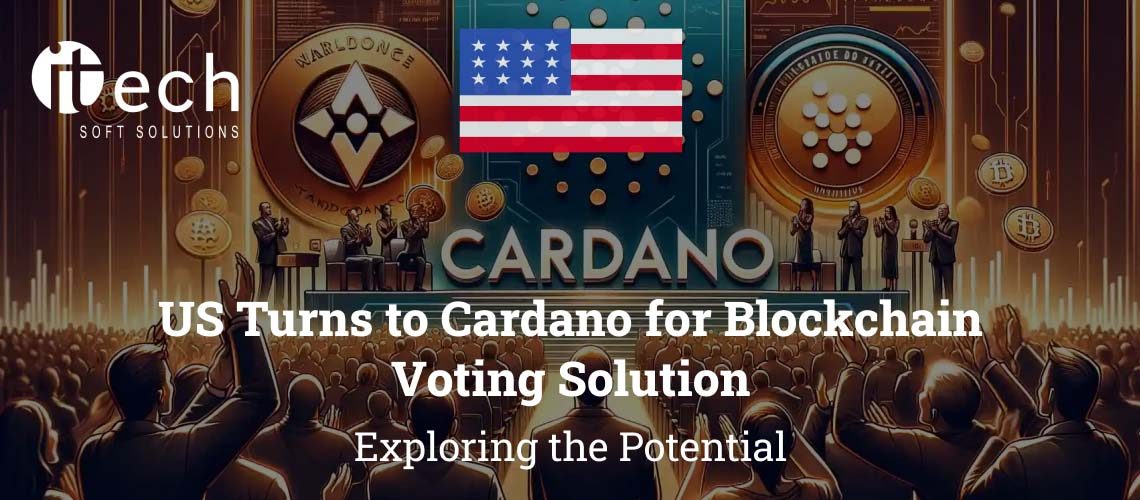Several U.S. states are at the forefront of electoral innovation, teaming up with the Cardano Foundation to pioneer a blockchain-based voting platform for the 2024 presidential elections. This cutting-edge initiative aims to drastically enhance the transparency and integrity of the electoral process, ensuring a secure and reliable framework for casting and counting votes.
Understanding Blockchain Voting:
Blockchain technology offers a decentralized and secure platform for recording transactions that is transparent, immutable, and fully auditable. In the voting context, this technology is poised to drastically improve security, diminish fraud, and uphold the integrity of election results. Blockchain facilitates casting votes as digital tokens, which not only bolsters security but also accelerates the process and broadens accessibility.
Why Cardano?
Renowned for its evidence-based approach and potent Proof of Stake (PoS) algorithm, Cardano stands out as more energy-efficient compared to traditional Proof of Work systems. It supports smart contracts and decentralized applications (dApps) that are perfectly suited for managing complex electoral processes. With these capabilities, Cardano emerges as a prime candidate to host a blockchain voting solution.
Hypothetical Scenario: The U.S. Election on the Cardano Blockchain
Imagine a future U.S. election powered by Cardano’s blockchain technology. Here’s how it might unfold:
- Voter Registration: Voters securely register through a dedicated portal, with their details stored on the blockchain to confirm eligibility.
- Voting Process: On Election Day, voters authenticate via a two-factor system and vote from any location using their preferred device, with each vote recorded on the Cardano blockchain.
- Counting Votes: Votes are tallied instantaneously, with each transaction validated by multiple network nodes, thus expediting the process and eliminating human error or manipulation.
- Results Declaration: Results are promptly declared post-verification of votes, thanks to the efficiency of blockchain technology.
- Audit and Recounts: In case of disputes, the blockchain’s transparency enables straightforward recounts or audits, allowing every vote to be traced back to its source while maintaining voter anonymity.
Benefits and Challenges:
The potential benefits of leveraging Cardano for U.S. elections are considerable:
- Enhanced Security: Blockchain’s encryption and decentralization significantly mitigate hacking and fraud risks.
- Increased Accessibility: Voters can participate without visiting polling stations, a boon for those in remote locations or with mobility challenges.
- Improved Efficiency: Automated vote counting reduces the resources and time typically required for elections.
Nonetheless, several challenges must be addressed:
- Technical Barriers: Shifting to blockchain-based voting necessitates substantial updates to existing technological infrastructures.
- Regulatory Hurdles: Implementing such a system across the nation involves complex compliance with diverse state and federal election laws.
- Voter Skepticism: Building trust in a new system and ensuring voter readiness through adequate digital literacy remain significant hurdles.
Conclusion:
While the idea of the U.S. turning to Cardano for its voting needs is still hypothetical, the potential for blockchain technology to transform the democratic process is undeniable. As this technology evolves, it is essential for policymakers, technologists, and the public must engage in informed discussions about the benefits and challenges of blockchain voting.
Whether or not Cardano becomes the solution of choice for the U.S. elections, its consideration prompts a much-needed evaluation of how technology can enhance the fairness and integrity of our electoral processes.



